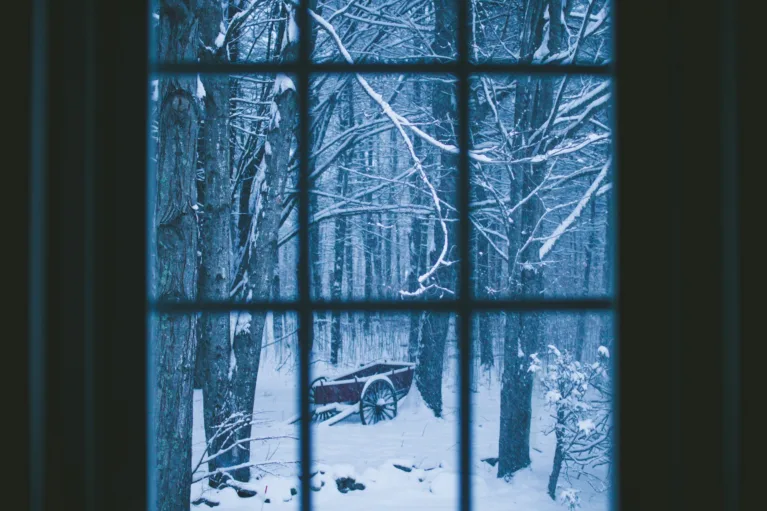Newsletter
I Spent Years Imprisoned Without Windows. Now, Snow Feels Like a Gift.
I was recently moved to a cell with a window after years without one. I never realized how much I’d taken nature for granted.

I sat there, mesmerized by the falling snow, watching it blanket the grass and concrete outside my cell window. I could feel the draft of the cold winter air through the small opening in the window. I could even smell it. Fat, fluffy snowflakes meandered to the ground. It had been years since I’d last seen snowfall like this. It brought back a flood of memories from the free world—some of the few not connected to violence, police, incarceration, or the other traumas that plagued my early years.
I have been in prison since December 2003. I’m serving a 45-year prison sentence for tragically taking another human’s life during a drug robbery gone bad. After years of windowless cells, I was recently moved to a cell with a huge one. I now have a small opening that lets fresh air flow through my space. I can see the dense forest surrounding the prison. The view is a gift to someone who has lived in confinement, encircled by a towering brick wall under fluorescent lights.
As I watched the snow, I reminisced about the days I spent snowboarding down the Pacific Northwest’s majestic Mt. Hood and Crystal Mountain. These small escapes from the violent neighborhood I grew up in were, ironically, only possible through selling drugs. I met people who could afford lift passes and lent me equipment.
Gazing out at the frost-tipped evergreen and cedar trees warmed my heart. I closed my eyes, allowing the memories to consume me. The freedom of flying down the snow-packed hills, the cold wind clashing against my reddened cheeks, the momentum building as I hurtled down the mountains, the gondola ride back up the mountain to do it all over again—it all felt like floating on air. As I looked out my window, all the razor wire fencing disappeared. Only the snow-covered trees and falling flakes remained.
I have dearly missed this childhood friend—the snow—and all the warm thoughts it brings. Seeing it now, up close, reminded me just how beautiful the world is, and how it’s these natural wonders that bring true happiness. The flashy cars, cool clothes, and sparkling jewelry that drove my greed in my early years don’t matter. I never miss them. They’re tied to memories of pain, struggle, and remorse. They represent the time I wish I could reverse.
These days, simpler memories of moments in nature with loved ones float through my mind. They help me get through the day inside a place meant to destroy all hope. I guess this is, in a sense, my love letter to a long-lost friend—a friend I’d written off from a time long past. But in this moment, I realize you’re as beautiful as ever. I hope we never part again.

ICYMI—From The Appeal
Media focus on police killings obscures many cases of non-fatal force. Data from 16 cities over the past decade reveals almost 5,000 incidents in which people experiencing mental health crises were beaten, Tased, shot, or had another form of violence used against them.
A scathing U.S. Department of Justice civil rights investigation confirmed something people incarcerated in Georgia have long known: The state routinely hides the number of people killed inside its prisons.
In The News
Unfair and unaccountable prison disciplinary systems are counterproductive, traumatizing, and lengthen prison stays, according to a new analysis of every state’s prison system. [Brian Nam-Sonenstein & Nell Haney / Prison Policy Initiative]
New York Gov. Kathy Hochul promised to fully equip her prisons with cameras after footage of Robert Brooks’s killing sparked a national outcry. [Rebecca McCray & Chris Gelardi / New York Focus]
Paternalistic policies meant to “benefit” incarcerated people instead undermine their autonomy, perpetuate power imbalances, and ignore the root causes of criminal behavior. [Carla J. Simmons / Prism]
A forensics company tells cops it can use DNA to predict a suspect’s face. Scientists worry the tool will deepen racial bias. [Jordan Smith / The Intercept]
Minneapolis agreed to pay $600,000 to settle a lawsuit by a woman who says she was the victim of excessive force and wrongful arrest by Derek Chauvin, the former officer who murdered George Floyd. [Steve Karnowski / The Associated Press]
